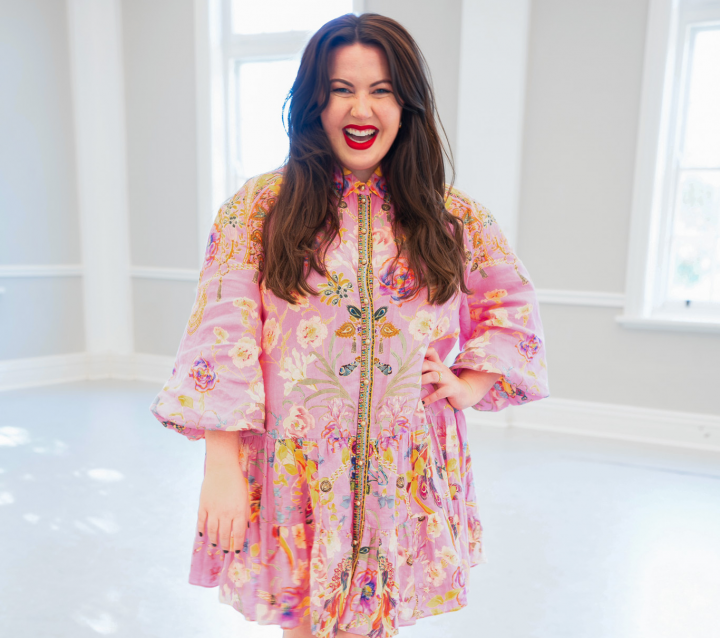Please tell us your story! How did you get to where you are today?
I’ve been singing since I was very young, but my journey to becoming a voice specialist started as a singer and singing teacher while studying jazz voice at university. Early on, I realised the way voice was being taught lacked a foundation in anatomy and physiology, and in empathy and kindness—most teachers were relying on “what worked for them” rather than evidence-based knowledge and there was a real shame/blame culture around teaching singing. My own vocal injury in 2008, was the turning point that pushed me to study Speech Pathology. I wanted to make sure no one else had the confusing, blame-filled healthcare or singing teaching experience I did.
That decision shaped everything: I became a voice-specialising Speech Pathologist, continued teaching singing, created my signature singing teacher training course, the Vocal Educator Toolkit, and eventually founded VocaLab, now one of Australia’s leading speech pathology-led voice services. Today, we offer voice therapy, singing coaching, singing teacher training, gender-affirming voice services, and workshops across Australia and internationally.
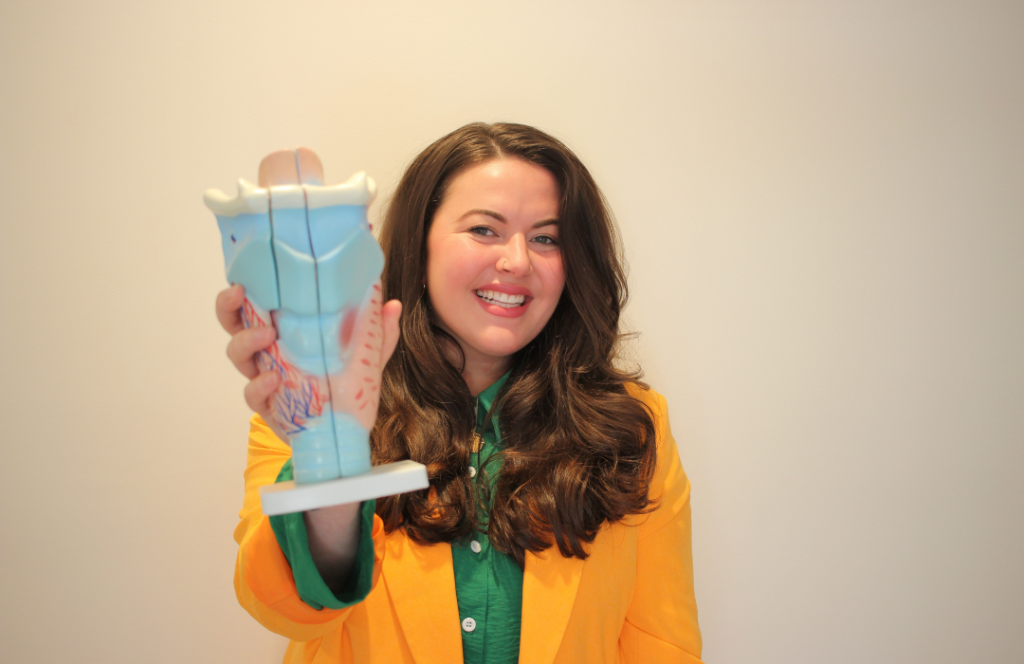
Do you feel that higher education is a necessary step to enter the music industry?
No way. I am a big believer in ‘building your own degree’. Look for short courses and training that interests you, and do it. Find someone who is already doing what you want to do and pay them to be your mentor. In my opinion, most higher education degrees are stacked full of ‘filler’, bureaucratic nonsense and red tape. If you want to learn music, start playing around on an instrument, open up garageband and hit record, watch youtube tutorials, listen to every genre of music you can, attend live gigs in your town, go to networking events, follow up-and-coming artists on socials and most importantly, if you’re trying to break into the music industry – just start posting! Don’t wait for it to be perfect. Just start. No one’s gonna hear your music when it’s sitting in a file on your desktop. And remember, if someone tells you, you ‘need’ a degree to ‘do’ music, what they are really saying is that they felt like they had to do one, and you ‘need to do your time too’ – no you don’t. There’s no ‘one right way’ to do music. Pave your own path. They chose theirs. You choose yours.
Why did you want to get into the music industry?
Music has always been my safe space. Growing up, it was the one thing no one could take from me, and being on stage meant being safe from everything and everyone. I wanted to help others experience that same connection to music—whether through singing, writing, or just having a voice they can trust. The music industry wasn’t about fame or glamour for me; it was about being part of something that gave me purpose and allowed me to create change.
Let’s talk about the highs vs the lows of your career. What is your greatest achievement?
My greatest ‘pinch me’ moment to date was when I started vocal coaching Tania Doko (Bachelor Girl). I used to listen to her songs (that I’d downloaded from Limewire) on my ipod shuffle on the bus on the way home from school. Full circle moment.
Greatest low was when I found out someone had copied my signature course, the Vocal Educator Toolkit and was advertising it and running it under a different name. I felt like someone had punched me in the gut. Thankfully, they stopped running it after a few months, after several people who had already taken my course called them out on it.
“Don’t take advice from people who aren’t in the ring“
Who has been your biggest champion in your career?
Myself, hands down.
Who are your role models in the industry be they local or international?
I’ve never strongly related to the idea of having role models. I don’t aspire to be anyone else or follow someone else’s path—I’ve always been more focused on carving out my own. So while I respect the work of many in the industry, I wouldn’t say I have a specific role model. It’s probably a bit unconventional, but it’s honest.
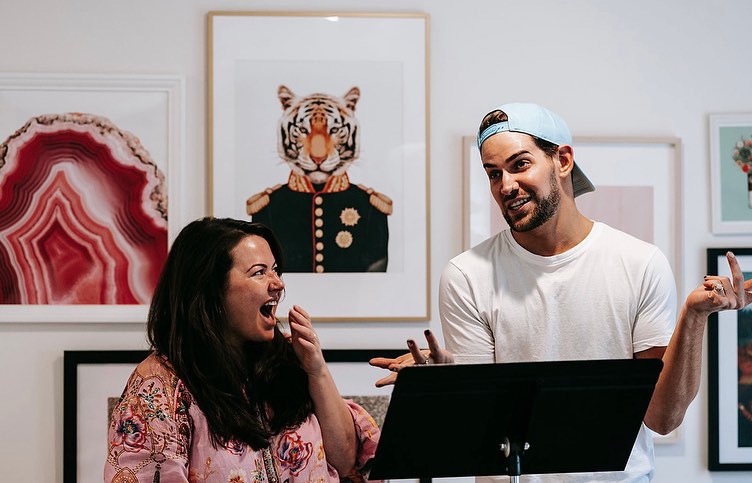
What is the best piece of life advice you’ve ever received?
‘Don’t take advice from people who aren’t in the ring’
The “ring” in this saying is a boxing ring—it’s about recognising when people are yelling instructions from the sidelines while never having stepped inside themselves. It’s a reminder to filter the advice you receive and ask: Is this coming from someone who’s actually doing the work, or from someone who’s never taken the hits?
I love this because it gives you permission to pause and assess the source. Someone might be offering advice on your singing career or business, but if they’ve never built something, taken risks, or recovered from failure, they’re not in your ring. Even if they’ve been in a ring before, it doesn’t mean they understand yours.
For me, “in the ring” isn’t limited to the music industry either—it’s about anyone actively building, running, and sustaining something. Entrepreneurs. Business owners. People who keep showing up, who know the sting of rejection and keep swinging anyway. Their advice carries weight because it comes from experience, not theory.
This mindset naturally ties into how I view scarcity vs abundance. People in scarcity see risk everywhere—too hard, too expensive, too likely to fail. People in abundance take the shot, send the email, make the investment, knowing opportunities and money will circle back.
Putting those ideas together—listening only to voices in the ring and leaning into abundance—has shaped how I filter every piece of advice and every decision I make.
“Voice is so tied to identity, work, and connection—it’s a privilege to help people rebuild trust in their voice, find a voice that feels like theirs, and keep doing what they love.”
Who are your top 3 ‘artists to watch’?
As a singing teacher, I have the privilege of working with many unsigned singer/songwriters – so I get to work with them on their songs to get them studio ready, help them with the creative process and help them build their voices, it’s pretty cool. So, I get to hear a lot of music when it’s super raw, not mixed or mastered. So some of my top 3 artists to watch may not even be artists who have their music out on any platforms just yet!
‘Solly Fern’ – folk/pop from South Australia, she lulls you into her dreamy melodies, then hits you right in the chest with all-too-relatable lyrics and explosions of vocal layering.

‘Natasha Bianca’ – pop/rap from SA, this woman makes bops. A stage-ready festival queen with a massive vocal range who was born to hype up crowds with her energy. She’s also one of the most incredibly motivated and hard working artists I have ever worked with.
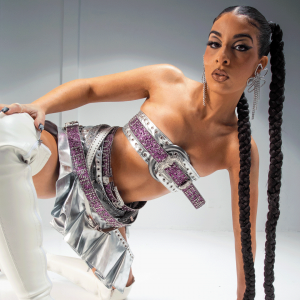
‘Leena Regan’ – Is ‘pop genius’ a genre? If so, that’s Leena. She creates the catchiest hooks, has the most iconic pop voice and best of all, she promotes collaborating with other artists in a way that builds up our music community.
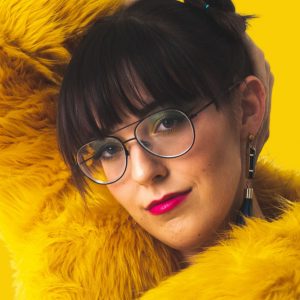
What is your big picture career goal?
Financial and time freedom, so I can help to create change in the communities that need it most.
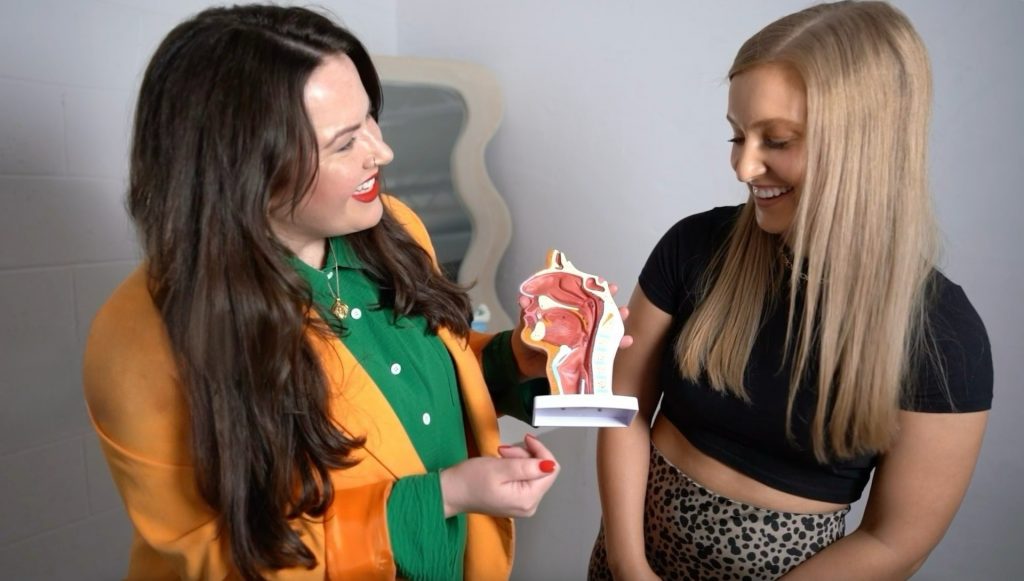
Elle, can you take us back to the early days—how did your love for singing and performance begin, and what role did music play in your life growing up?
Music and singing weren’t just hobbies for me—they were lifelines. Growing up, I didn’t have much that felt like it belonged solely to me, but my voice was mine. No matter how chaotic things got at home, no one could take that away from me.
When I stepped onto a stage, it wasn’t about applause or accolades—it was about safety. The second I was up there, I knew I couldn’t be yelled at, hurt, or told what to do. Singing gave me freedom and control when so much else felt uncertain.
I threw myself into choirs and class bands, surrounded by teachers who saw me, encouraged me, and gave me a place to belong. I was told to sing loudly, to perform fully—and I discovered I was good at it. It felt easy and natural, which was a welcome relief from the survival mode I was in at home.
That upbringing wasn’t easy, but it gave me skills that are now at the heart of everything I do. It taught me how to deeply connect—with my patients, my students, and my friends. It showed me my resilience, grew my empathy, and made me a fierce champion for people to have a voice, be that in volume or to advocate for themselves and others.
“Navigating the healthcare system back then was confusing, isolating, and at times, dehumanising. I was given vague instructions (“don’t talk for six weeks”) and left feeling like the injury was my fault.”
Your career took a major turn after a night out led to vocal fold nodules. Can you share what happened and how it changed your path?
My voice had always been one of the most reliable things in my life—until that night. I woke up the next morning, went to speak, and nothing came out. Even when I tried to scream, there was silence. It was terrifying.
The night before, I’d gone to a friend’s gig and spent hours standing right by a huge speaker stack, having a deep conversation, which meant I was yelling for one or two hours straight. Add in the dehydration and throat irritation from alcohol, and it was the perfect recipe for a vocal injury.
That sent me to an Ear, Nose and Throat (ENT) doctor for the first time. He very briskly told me I had a single, small vocal fold nodule and sent me on my way. I was referred to a Speech Pathologist for voice therapy—something I didn’t understand at the time, because I thought SLPs only worked with kids.
This was back in 2008, almost 20 years ago, when the approach to voice care was very different. I was told to stop talking for six weeks and “breathe warm air into my hand.” The appointment felt rushed, “blamey,” and left me even more confused than before.
Even though those early healthcare experiences weren’t positive, they became the catalyst for everything I’ve done since. That moment made me realise:
- I wanted to make sure no one else had a confusing, dismissive experience like mine.
No one around me (I was studying jazz voice at the time) truly understood how the voice worked—teachers were just teaching by “feel.” - I needed to learn more about the voice myself, and be the change.
That decision led me to study Speech Pathology and specialise in voice, all while continuing to teach singing. From there, I built VocaLab and wrote the Vocal Educator Toolkit—a course that gives singing teachers voice anatomy and physiology knowledge, delivered in a kind, non-judgemental way, while encouraging them to keep learning and investing in professional development.
What was it like navigating the healthcare system as a singer dealing with a vocal injury? Did that experience influence how you approach voice care today?
Navigating the healthcare system back then was confusing, isolating, and at times, dehumanising. I was given vague instructions (“don’t talk for six weeks”) and left feeling like the injury was my fault. That experience completely changed how I approach my work now—I make sure every client understands what’s happening in their voice, feels respected, and leaves with clear, actionable steps. No one should walk away feeling blamed or dismissed.
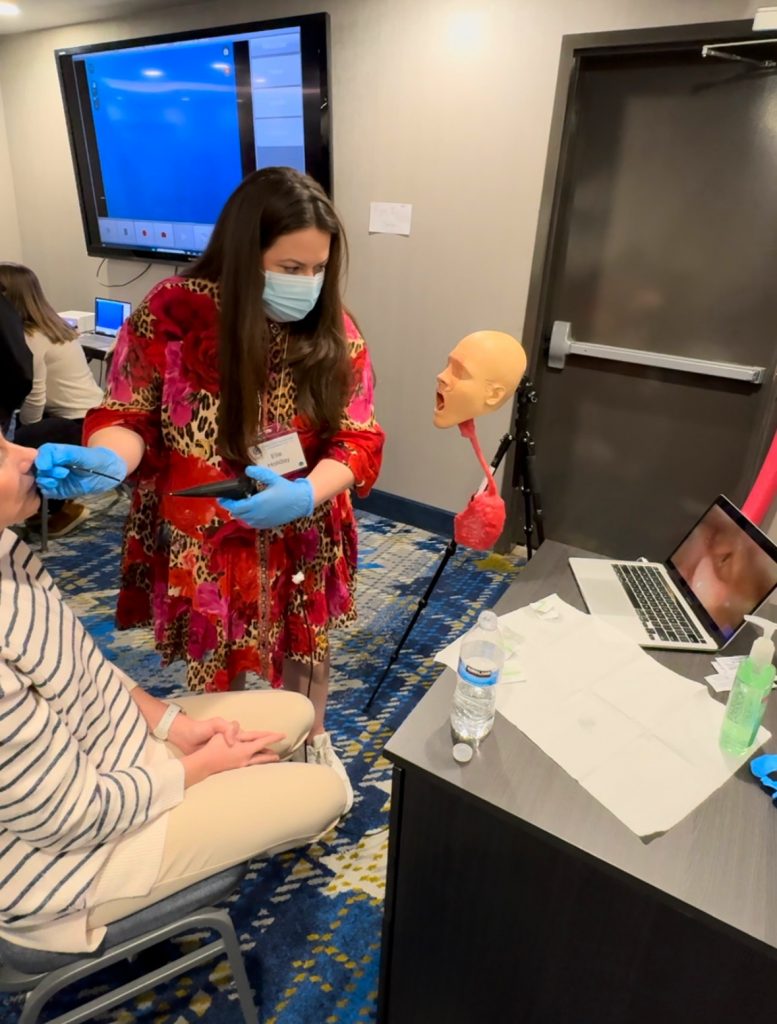
At what point did you start teaching singing, and what did you notice about the way voice was being taught in the industry?
I started teaching singing in my first year of studying Jazz Voice at university. A teacher mentioned there was a vacancy at a local music school and asked if I’d be interested—I jumped at it. On my very first day, I walked into this dark, dingy room, my first student came in, and it hit me: I had absolutely no idea what I was doing.
All I could do was rely on what my own teachers had taught me in my lessons. This was 2008, and back then there wasn’t the same access to vocal anatomy and physiology education we have today. Every teacher I knew taught purely based on what singing felt like in their own body. That meant only students with similar voice types and similar anatomy to their teachers really benefitted—everyone else got left behind.
You’ve spoken about the lack of anatomical knowledge among singing teachers—what motivated you to dive deeper into voice science and vocal health?
That moment of realising how much I didn’t know stayed with me, but what really changed everything was my own vocal injury in 2008. I went from feeling like my voice was unshakeable to being completely voiceless overnight and I realised that I had no clue what to do to fix it.
I reached out to every singer and teacher I knew for help—and the answers I got were all over the place. Advice conflicted, explanations were long and metaphor-heavy, and nothing felt clear or usable. I realised something important: when someone truly understands something, they can explain it simply. When they don’t, it takes a very long time and leaves you confused.
No one had the answers I needed, so I decided I’d have to find them myself. That’s when I started the deep dive (and I’m still doing it to this day!)
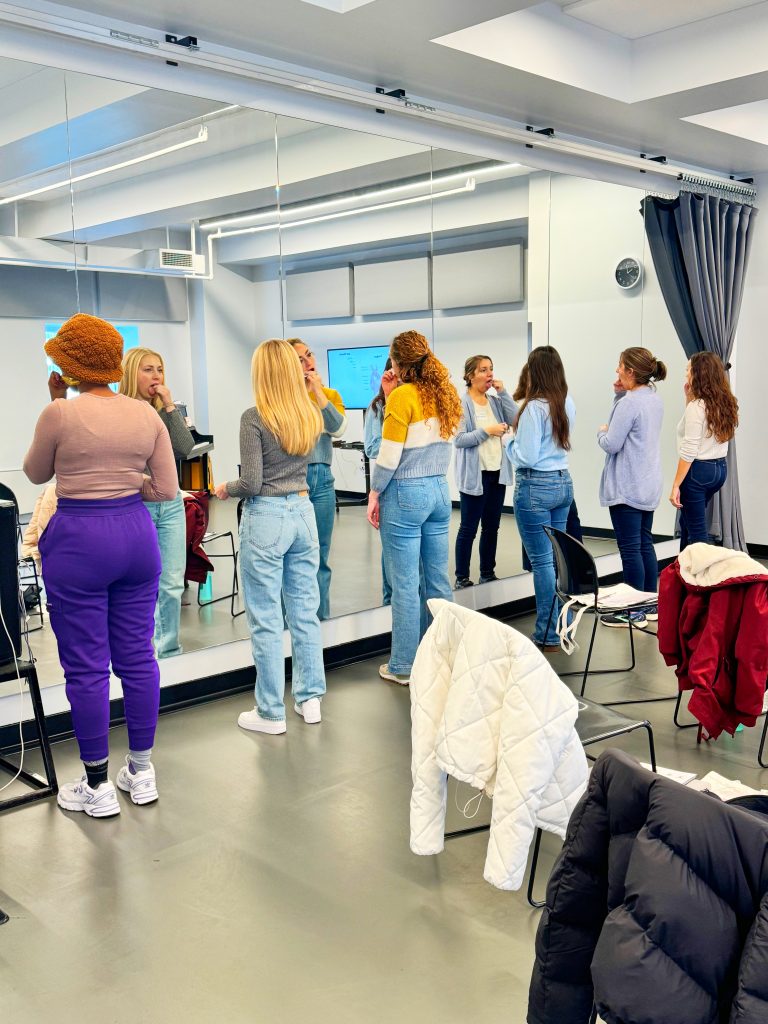
How did studying Speech Pathology change your understanding of the voice, and how did that new knowledge start to influence your teaching?
Studying Speech Pathology completely changed how I thought about the voice. Suddenly, I wasn’t just guessing—I was learning the mechanisms behind every sound, every breath, every strain.
I kept teaching singing while I studied, which meant I could apply what I was learning straight away. I started writing down what I did with each student, how they responded, and what I’d do next session. That simple change made me more organised, gave students more accountability, and stopped me from relying on memory for 50 students a week.
Most importantly, I could finally explain the voice—not in vague metaphors, but in clear, simple terms. Some students responded well to imagery (“imagine there’s a string pulling you up”), but others wanted the science, and I could now give it to them. Knowing the anatomy and physiology meant I could hear an issue and confidently choose an exercise that would fix it, rather than throwing ideas around and hoping something worked.
It also pushed me to start taking professional development seriously—something that just wasn’t done in singing teaching back then. The combination of clinical training and teaching experience gave me a new level of confidence and completely transformed how I work with voices.
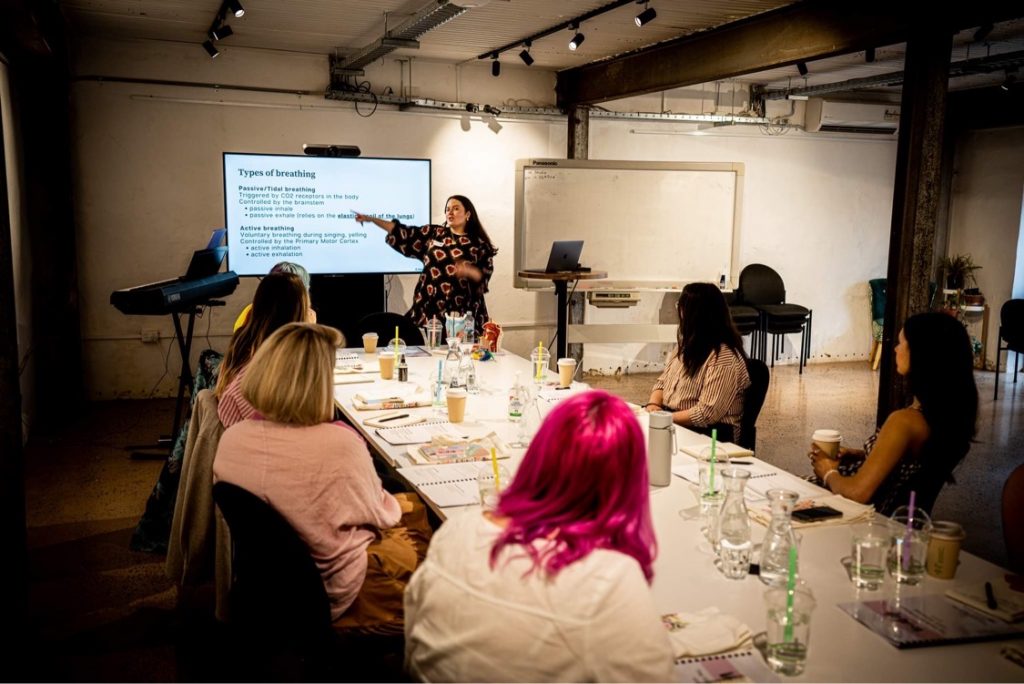
“gender-affirming voice training is about autonomy. It’s not about conforming to stereotypes; it’s about helping people take ownership of their voice and presentation on their own terms—so they can feel at home in who they are.”
Tell us about VocaLab?
VocaLab is a speech pathology-led voice service based in South Australia, but we work nationally and internationally. We:
- Provide clinical voice therapy for people with vocal injuries and voice disorders
- Provide singing lessons from teachers who really know their stuff
- Offer gender-affirming voice training
- Run singing teacher training programs like the Vocal Educator Toolkit and Advanced Vocal Technique workshops
- Support singers, actors, educators, and other professional voice users to stay healthy and sustainable in their careers.
What sets VocaLab apart is that we combine the clinical expertise of Speech Pathology with the real-world experience of professional singing and performance coaching.
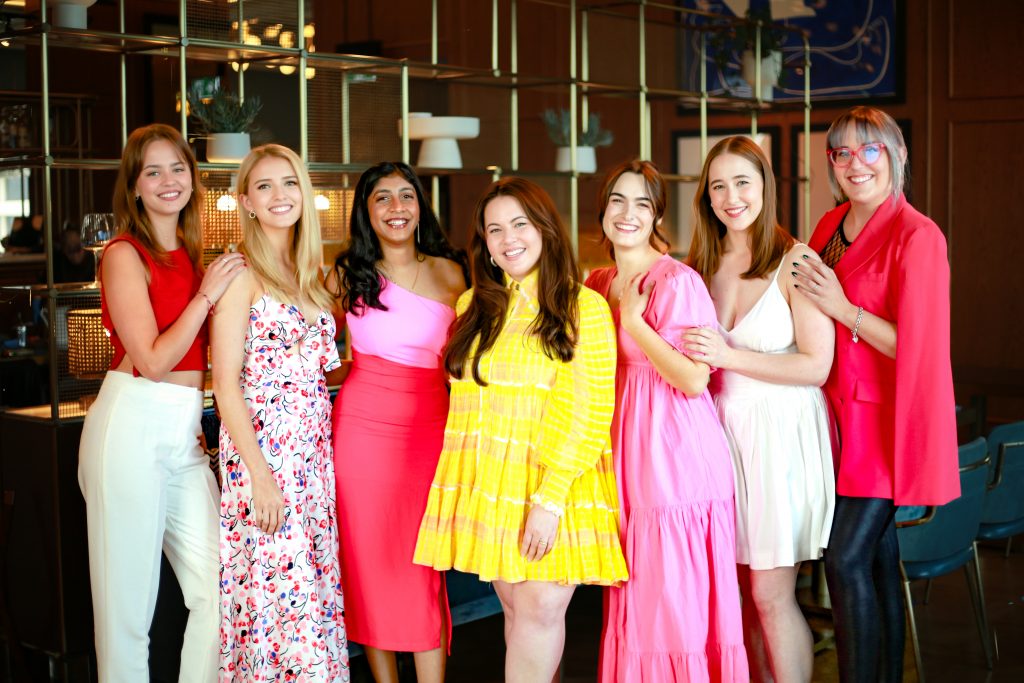
What kind of people typically come to VocaLab? Are they all singers, or is it a broader group of voice users?
It’s a mix:
- Professional singers and actors needing technique troubleshooting or injury rehab
- Singer/songwriters looking to build their vocal fitness before they go on tour
- People with voice disorders needing therapy
- Fitness instructors, lawyers, coaches, call centre employees, lecturers, tour guides
- School Teachers (one of the highest-risk professions for vocal injury)
- Singing teachers looking for professional development and training
- Trans and gender-diverse clients seeking gender-affirming voice work
- Corporate professionals needing executive voice coaching
- Business looking to educate their staff on vocal health
Basically—anyone who uses their voice for work or identity. So, everyone really.
Vocal health is a big focus at VocaLab. How do you educate people on this, and what sets your approach apart?
At VocaLab, vocal health isn’t a side offering—it’s the foundation of everything we do. We’re a speech pathology-led voice service, which means our entire approach is grounded in evidence, anatomy, and science, not guesswork or gimmicks. Every program, lesson, and workshop we deliver is built to empower people to understand their voice, protect it, and use it sustainably.
We educate by stripping away the fluff. There’s no vague, metaphor-heavy language—just clear, accessible explanations of how the voice actually works and how to care for it in real life. Whether we’re teaching a singer how to pace rehearsals to avoid injury, helping a school teacher learn how to project without strain, or guiding a gender-affirming client to find a voice they love, we focus on practical tools that can be used straight away.
What sets VocaLab apart is the unique mix of clinical expertise and performance experience. Our team includes speech pathologists who specialise solely in voice, alongside singing teachers and vocal coaches who understand the demands of performance at every level—from Broadway to local gigs to the recording studio. That blend means we can troubleshoot complex vocal issues, rehabilitate injuries, and teach world-class technique, all under one ‘roof’.
We don’t just work reactively; prevention is a huge part of our mission. Our instagram page @vocalabau is full of free evidence-based vocal health info, our workshops for singers, theatres, and workplaces raise awareness before problems become injuries, and our teacher training courses like the Vocal Educator Toolkit give singing teachers the anatomy, physiology, and teaching strategies they need to keep their students safe and thriving.
Clients come to us because they want the best—and they stay because they see results. We’ve helped professional singers get back on stage after career-threatening injuries, taught educators how to cut down on voice strain and sick days, and provided gender-affirming voice training that has changed lives.
VocaLab is different because we see the voice for what it really is: a powerful, delicate, essential part of who we are. And we’ve built a service that honours that—combining science, skill, and care to help every voice reach its full potential.
VocaLab supports people dealing with vocal injuries and those seeking gender-affirming voice work. What does it mean to you to be able to serve such a diverse voice community?
It means everything. Voice is so tied to identity, work, and connection—it’s a privilege to help people rebuild trust in their voice, find a voice that feels like theirs, and keep doing what they love.
For singers, it might mean getting back on stage after an injury or retraining their voice to sing a different genre. For someone seeking gender-affirming voice work, it can mean finally feeling safe in their own body. Being able to do both in one space feels like the work I was meant to do.
“At VocaLab, vocal health isn’t a side offering—it’s the foundation of everything we do. We’re a speech pathology-led voice service, which means our entire approach is grounded in evidence, anatomy, and science, not guesswork or gimmicks.“
Performance anxiety is such a big issue for artists. How does your coach, Andrea Fleming, help clients navigate that?
Andrea helps artists dismantle performance anxiety by getting to the root of it—not just covering symptoms. She’s a trauma-trained life coach who combines somatic tools, mindset work, and practical strategies to retrain how the nervous system responds to pressure.
Instead of “just relax” advice that doesn’t work, she gives performers skills they can actually use in the moment—whether that’s before a high-stakes audition, on stage, or in the studio. Her approach is holistic; she looks at how thoughts, habits, movement, and even daily routines impact anxiety, and builds a plan to shift them.
Artists who work with Andrea leave with more than coping strategies—they leave with confidence. They stop feeling like they’re surviving performances and start feeling like they can show up fully, perform freely, and actually enjoy it again.
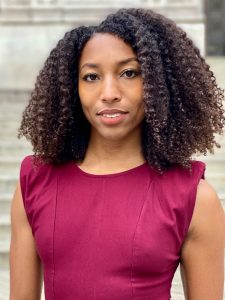 Pictured: Andrea Fleming
Pictured: Andrea Fleming
You offer gender-affirming voice training (GAVT)—how do you approach that work, and why is it important?
I approach gender-affirming voice training the same way I approach any other voice work: we set clear goals, I take voice measures to establish a baseline, and then I create a tailored plan to help the client build a voice they love and trust. Voices are voices regardless of gender—but gender-affirming voice training goes beyond just “training the voice.”
It’s about respect, dignity, and safety, and for some people, it is genuinely life-saving. Voice is deeply tied to identity. For many transgender and gender nonconforming (TGNC) people, their voice can be a major source of gender dysphoria. There’s a saying: “the voice is our second face.” It means that if you saw my face, you’d know who I was, and if you heard my voice on the phone, you’d know it was me. For TGNC individuals, finding a voice that feels right is a crucial part of feeling whole.
This work also matters because the TGNC community often faces discrimination in healthcare. Gender-affirming voice services provide a rare space where clients are seen, respected, and supported without judgment or assumption. A voice that aligns with someone’s gender can even impact their safety—reducing misgendering and unwanted attention, which in turn can lessen emotional distress or risk of harm.
Ultimately, gender-affirming voice training is about autonomy. It’s not about conforming to stereotypes; it’s about helping people take ownership of their voice and presentation on their own terms—so they can feel at home in who they are.
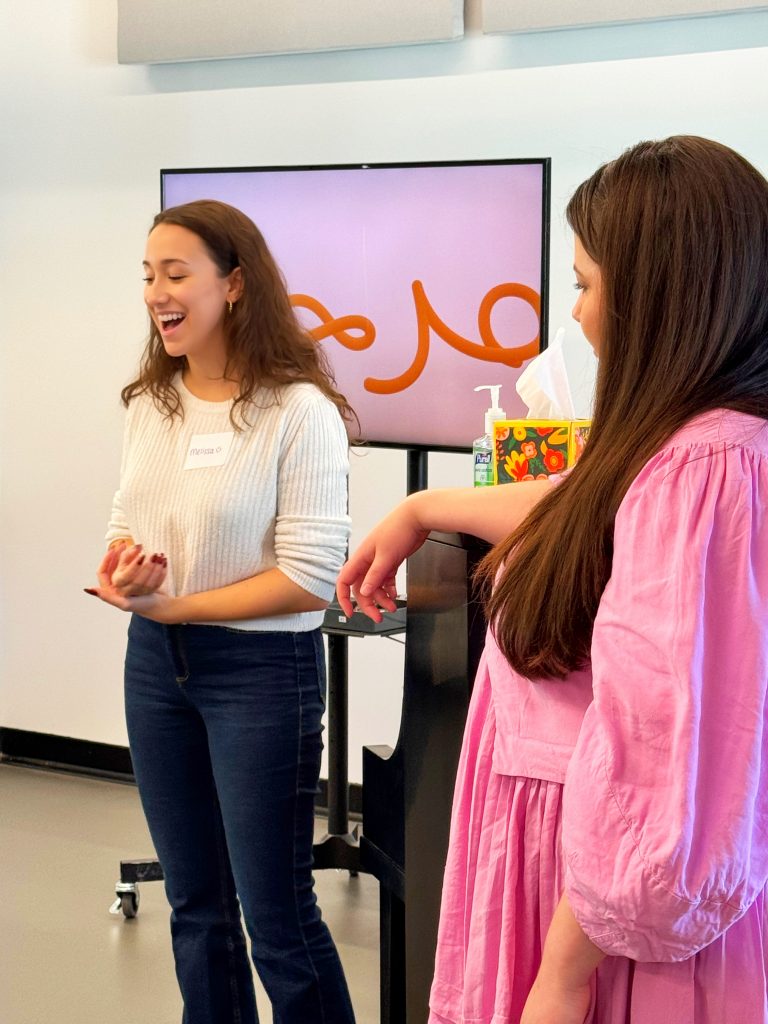
As an artist & vocal therapist; what is important for you to see at your shows when it comes to audience engagement, what message would you love for them to take away?
I want people to walk away feeling like they’ve been part of something real—not a polished performance that felt untouchable, but an experience that made them feel connected and seen. If someone leaves thinking, “I felt safe to be myself here,” or they feel inspired to get on a stage and show their art without feeling the need for it to be ‘perfect’ first, then I’ve done my job.
Is there a message you would like to give to others in the industry that doesn’t work in your line of work? Eg. Bookers, label leaders, producers etc.
Everyone speaks more than they sing. If you work with singers and need them to be networking, taking meetings, and socialising on top of singing to promote themselves and their music, you need to provide environments that are safe for voice use.
This looks like: booking quiet restaurants/meeting spots, so they aren’t talking over loud music, or busy restaurant noise. This means not calling them while they are on Bluetooth in the car; because everyone naturally speaks louder in the car to compete with road and engine noise. It looks like encouraging singers to cool down after a gig, before chatting with patrons – regardless of who is there or how excited they are.
The voice is a part of the body, it’s made of muscles and ligaments and tissue which means it is prone to injury. Not considering how singers are required to use their voice outside of the studio and stage is an OH&S issue. Be proactive about voice care.
What would you tell your younger self if you could tell them anything?
You are going to be so loved and you will build yourself the best life – keep going.
“There’s no ‘one right way’ to do music. Pave your own path. They chose theirs. You choose yours.”
When I grow up I want to be or I want to see?
I want to see: The end of the genocide in Gaza, women and first nations people leading our governments, equal pay across genders, women’s rights restored globally, free childcare, education and health care across Australia, churches paying tax, empty housing being used to house displaced people in Australia, and men’s violence against women ended. To name a few.
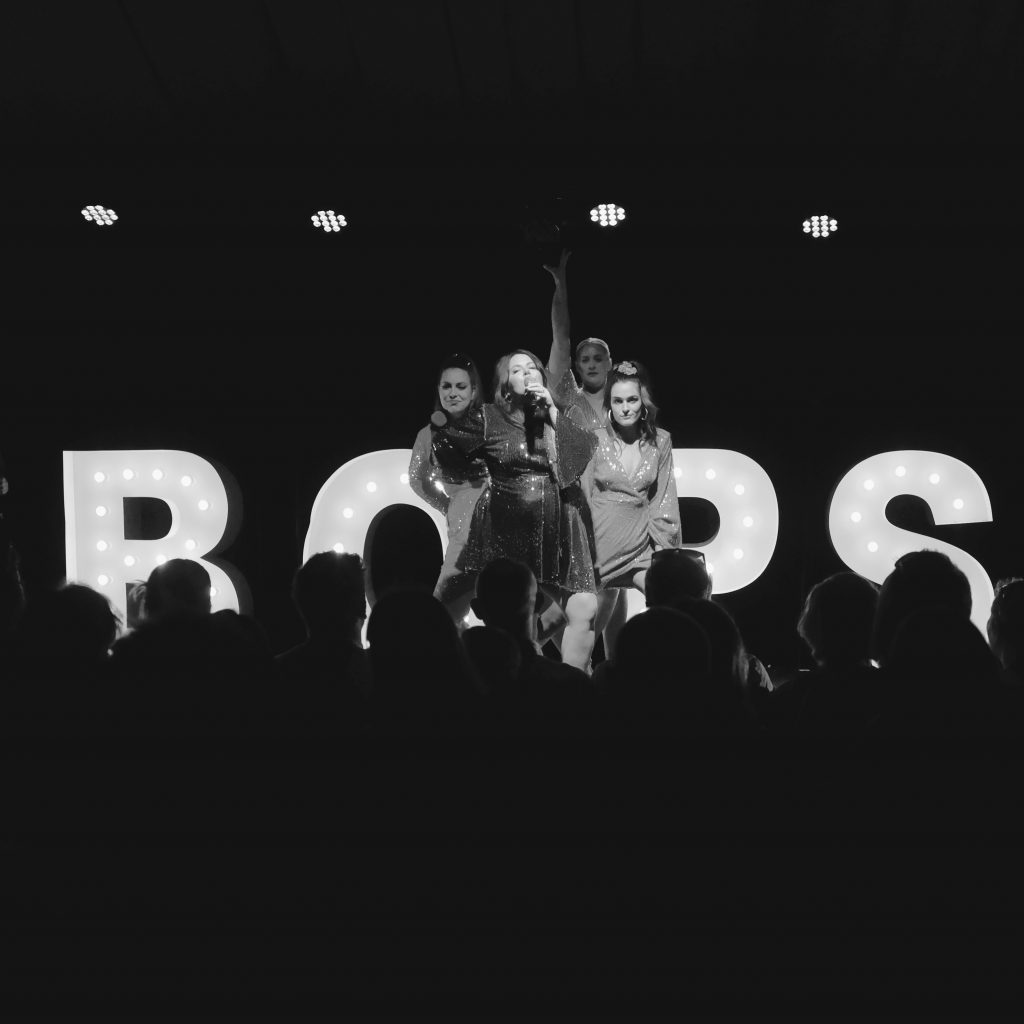
What can we all look forward to for 2025, any big projects you can let us in on?
2025 is about steady growth for me and for VocaLab—we’re not rushing, but we’re building carefully and sustainably. One thing to look out for is a book I’m writing, which I’m aiming to have published by the end of the year.
What is your go-to Karaoke song?
If I ain’t go you – Alicia Keys
